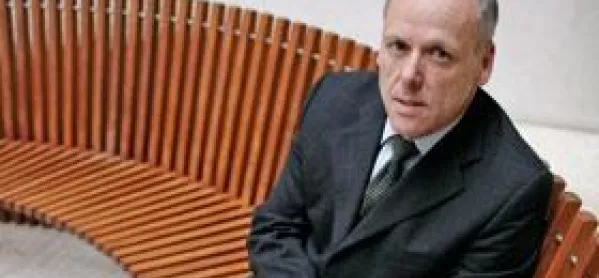Throw us more than a bone, urges AoC chief

Colleges have had their funding cut down to “bones levels” and could be forced to become “bidding machines” as they try to secure additional pockets of cash to stay afloat, the Association of Colleges (AoC) fears.
Martin Doel, the AoC’s chief executive, has paid tribute to colleges for maintaining their student numbers despite economic pressures, but warned that an increasing number of policy initiatives could eat into their core budgets.
Speaking exclusively to TES, Mr Doel said he had already told Matthew Hancock, the new FE minister, of colleges’ support for the legacy of “freedom and flexibility and autonomy” put in place by the previous incumbent, John Hayes.
“Participation is holding up, while the rate for the job for colleges has gone down,” he said. “I’m very concerned that colleges are running these things at near their bones levels. While colleges are getting the numbers in, in some cases they are only barely spending their allocation because the rates have been constrained.
“That, I think, can’t continue, because their ability to cross-subsidise hard-to-reach students, to deliver the types of things local authorities are asking them to do. is constrained by their (limited) ability to reinvest in facilities and their staff.”
But Mr Doel insisted that both the government and the FE sector have much more to do if colleges are to take advantage of their increased autonomy. “That’s not something you would achieve with six months to a year; a cultural change is needed.
“Progress on this is partial on both sides. A lot of the sector is still littered with previous control regimes; the ideas have taken hold but the behaviour needs to follow.”
Mr Doel also hit out at the plethora of recent announcements that he fears could ultimately divert funding from colleges’ core provision. “We’ll have a series of partial initiatives, from the employer ownership pilot, from what the Heseltine review (of links between the public and private sectors) may come up with, to the city growth strategy initiatives, LEPs (local enterprise partnerships) flexing their muscles and the Local Government Association saying that funding will return to local authorities.
“Some of those initiatives may be more sound than others. There’s the risk, I think, that one at a time they, almost by a process of gradation, eat into the single-line adult budget that colleges have to serve their communities, the consequence of which could be (that) colleges become a series of bidding machines that bid for those various streams of funding.”
The other risk, Mr Doel believes, is that the smaller pots of funding are more vulnerable to the Treasury “hiving them off, bit by bit”, with the “inherent threat to the quality” of students’ experience that implies.
He welcomed recent talks with Ofsted chief inspector Sir Michael Wilshaw about issues facing the sector in the light of the watchdog’s new inspection regime. In Ofsted’s last annual report, no college was found to have outstanding teaching and learning. Many colleges are concerned that they could be about to be judged even more harshly, the AoC believes.
Mr Doel has called for a “credible, transparent and unambiguous” process and has backed plans to create a “level playing field”, with colleges and schools compared more fairly on their success rates. He has also called for more clarity on what colleges need to do to achieve the top grades in inspections. “We need to know what their view of outstanding teaching and learning is,” he said.
“We are concerned about consistency and are suspicious that some judgements have been made in anticipation of the new framework before it was in place,” he added. “The reports have become formulaic; they have to get under the skin of a college. Unless they can see themselves in the mirror, they can’t improve.”
CV
1976: Completed studies at Totton Sixth Form College
1980: Gained a first-class degree in education at King Alfred’s College (now the University of Winchester)
1980: Joined the Royal Air Force as a commissioned officer
1980-2000: Took a post equivalent to director of studies at the Joint Services Command and Staff College, which educates officers in the Armed Forces in conjunction with King’s College London
2000-2003: Commander of three RAF bases in Cambridge and Bedfordshire; completed elementary flying course
2004-2007: RAF’s director of personnel and training strategy
2007-2008: Director of training and education for all three armed forces at the Ministry of Defence
2006-2008: Chairman of the RAF Football Association and UEFA B-class coach
2008: Became Association of Colleges’ chief executive.
Keep reading for just £1 per month
You've reached your limit of free articles this month. Subscribe for £1 per month for three months and get:
- Unlimited access to all Tes magazine content
- Exclusive subscriber-only stories
- Award-winning email newsletters



